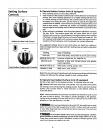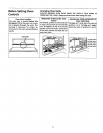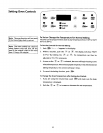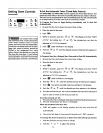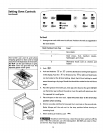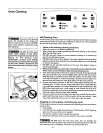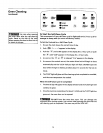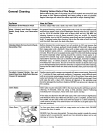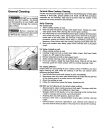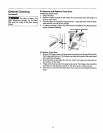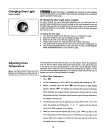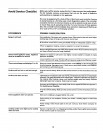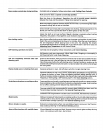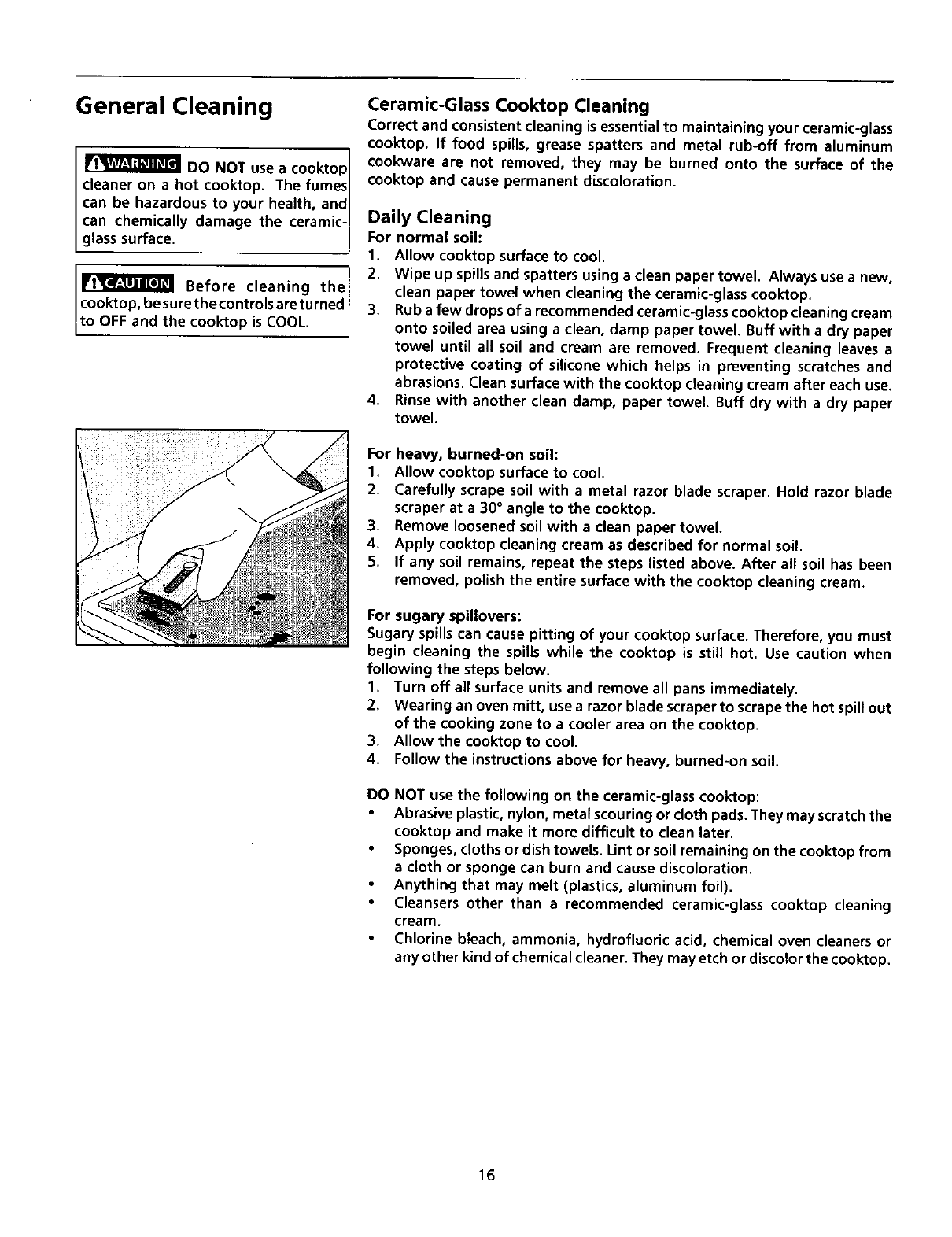
General Cleaning
I
DO NOT use a cooktopI
cleaner on a hot cooktop. The fumesI
can be hazardous to your health, andI
can chemically damage the ceramic-
g asssurface.
Before cleaning the 1
cooktop, besurethe controlsareturned /
to OFF and the cooktop isCOOL. J
Ceramic-Glass Cooktop Cleaning
Correct and consistentcleaning isessential to maintaining your ceramic-glass
cooktop. If food spills, grease spatters and metal rub-off from aluminum
cookware are not removed, they may be burned onto the surface of the
cooktop and causepermanent discoloration.
Daily Cleaning
For normal soil:
1. Allow cooktop surface to cool.
2. Wipe up spills and spatters using a clean paper towel. Always use a new,
clean paper towel when cleaning the ceramic-glass cooktop.
3. Rub a few drops of a recommended ceramic-glass cooktop cleaning cream
onto soiled area using a clean, damp paper towel. Buff with a dry paper
towel until all soil and cream are removed. Frequent cleaning leaves a
protective coating of silicone which helps in preventing scratches and
abrasions. Clean surface with the cooktop cleaning cream after each use.
4. Rinse with another clean damp, paper towel. Buff dry with a dry paper
towel.
For heavy, burned-on soil:
1. Allow cooktop surface to cool.
2. Carefully scrape soil with a metal razor blade scraper. Hold razor blade
scraper at a 30° angle to the cooktop.
3. Remove loosened soil with a clean paper towel
4, Apply cooktop cleaning cream as described for normal soil.
5. If any soil remains, repeat the steps listed above. After all soil has been
removed, polish the entire surface with the cooktop cleaning cream.
For sugary spillovers:
Sugary spills can cause pitting of your cooktop surface. Therefore, you must
begin cleaning the spills while the cooktop is still hot. Use caution when
following the steps below.
1. Turn off all surface units and remove all pans immediately.
2. Wearing an oven mitt, use a razor blade scraper to scrape the hot spilt out
of the cooking zone to a cooler area on the cooktop.
3. Allow the cooktop to cool.
4. Follow the instructions above for heavy, burned-on soil.
DO NOT use the following on the ceramic-glass cooktop:
Abrasive plastic, nylon, metal scouring or cloth pads. They may scratch the
cooktop and make it more difficult to clean later.
• Sponges, cloths or dish towels. Lint or soil remaining on the cooktop from
a cloth or sponge can burn and cause discoloration.
• Anything that may melt (plastics, aluminum foil).
• Cleansers other than a recommended ceramic-glass cooktop cleaning
cream.
Chlorine bleach, ammonia, hydrofluoric acid, chemical oven cleaners or
any other kind of chemical cleaner. They may etch or discolor the cooktop.
16



